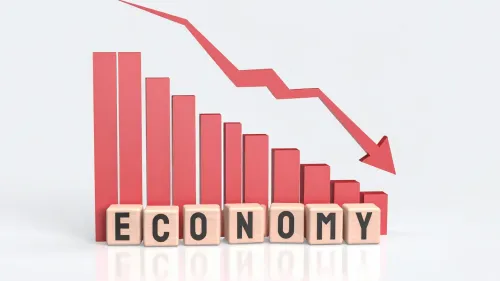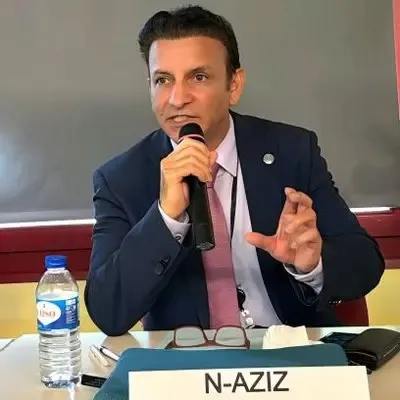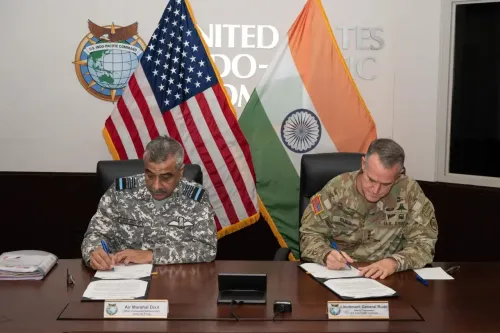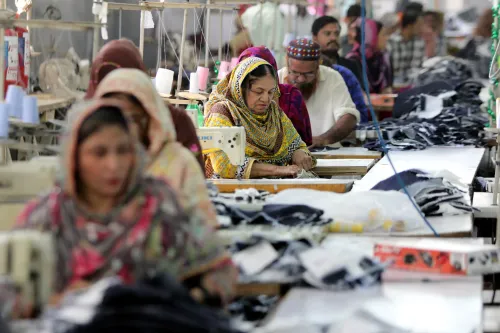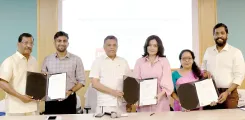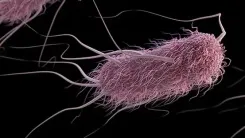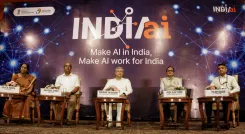Why Does the Maldives Hold a 'Special Place' in India's Neighbourhood Policy?
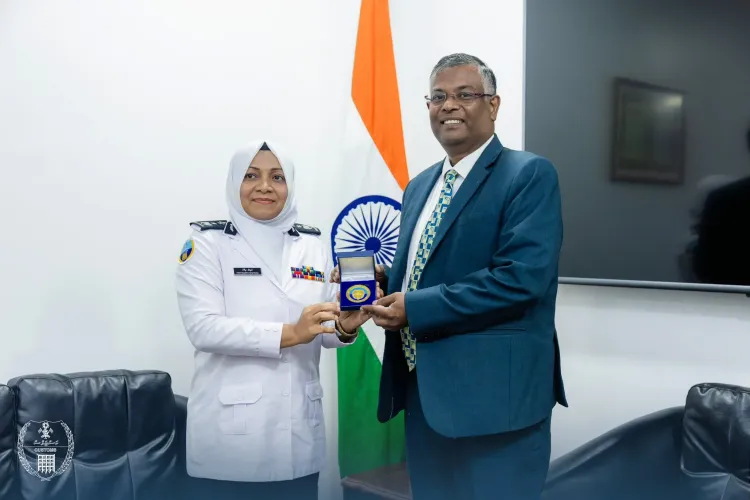
Synopsis
Key Takeaways
- PM Modi's visit coincides with the 60th Independence Day of the Maldives.
- Strengthening bilateral relations is a key focus of the visit.
- Agreements in finance, health, and fisheries are expected to be signed.
- India is a significant development partner, with over $3 billion in assistance.
- Private engagements will also be held during the visit.
Male, July 24 (NationPress) G. Balasubramanian, India's High Commissioner to the Maldives, stated on Thursday that the relationship between India and the Maldives stands strong and independent of external influences, with the island nation holding a "special position" in India's 'Neighbourhood First' policy. In a recent interview with IANS, ahead of Prime Minister Narendra Modi's upcoming two-day visit to the Maldives set to begin on Friday, the diplomat emphasized the ongoing enhancement of bilateral relations while highlighting that PM Modi will be the inaugural head of State to visit the Maldives following President Mohamed Muizzu's assumption of office.
Balasubramanian elaborated on India's significant role in the development of the Maldives, mentioning several agreements anticipated to be formalized during PM Modi's visit.
Excerpts:
IANS: How will PM Modi's visit to the Maldives enhance bilateral ties?
G. Balasubramanian: This visit is crucial. Prime Minister Narendra Modi will be in the Maldives at the invitation of President Mohamed Muizzu, coinciding with the 60th anniversary of their Independence Day. He is arriving on July 25 and departing on July 26.
This visit marks a pivotal moment in fortifying the bilateral relationship between our nations. It will be PM Modi's third visit to the Maldives—his first two being in 2018 and 2019. Notably, this is the first official visit by a head of State since President Muizzu took office, and it is also the first time since 2017 that the Maldives has invited a guest of honor for their Independence Day celebrations.
The 60th anniversary of Maldives' Independence coincides with the sixtieth year of diplomatic relations between our countries. India was among the first nations to acknowledge the Maldives' independence in 1965, fostering a long-standing friendship and diplomatic bond.
To celebrate this significant milestone, our Prime Minister and the Maldives President will unveil a commemorative stamp to honor this event, marking another important development in our relationship.
IANS: Is the influence of China in the region a concern?
G. Balasubramanian: I believe our relationships are independent of those with other nations. The bond we share with the Maldives is rooted in historical friendship and geographical proximity. Our Prime Minister has emphasized the critical role of the 'Neighbourhood First' policy in Indian diplomacy, in which the Maldives holds a special position. This defines our relationship.
IANS: What activities are scheduled during the Prime Minister's visit?
G. Balasubramanian: After participating in the Independence Day event on July 26, he will engage in bilateral meetings with President Muizzu. He will also inaugurate various projects we have undertaken, formally hand them over, and sign MOUs, making for a packed schedule during this visit.
Both leaders will also evaluate the progress made on the vision document established last year during President Muizzu's State Visit to India in October 2024, which outlines a comprehensive partnership focusing on economic and maritime security.
We are also set to sign several MOUs, which will form a key part of this official visit.
IANS: What new MOUs are being proposed between the two countries?
G. Balasubramanian: We have been collaborating closely, and we will introduce agreements concerning commerce, health, finance, fisheries, and more. These sectors have seen close cooperation, especially in capacity building and training, as well as resolving various issues between our nations.
IANS: How is India contributing to the tourism sector in the Maldives?
G. Balasubramanian: India ranks as the sixth largest tourist supplier to the Maldives. Last year, approximately 140,000 Indians visited the Maldives, and by June this year, over 60,000 had already made the trip. It's noteworthy that the one millionth tourist to the Maldives in 2025 is expected to be an Indian.
IANS: Are there any anticipated agreements that might be finalized during this visit?
G. Balasubramanian: There are several significant areas we are focusing on. An announcement regarding Fintech is likely. We have already agreed on the terms for initiating discussions on a Free Trade Agreement, which are crucial for both nations. Additionally, we will enhance cooperation in fisheries, capacity building, digital public infrastructure, and the Indian pharmacopoeia, all of which will be mutually beneficial.
IANS: Can you elaborate on India's contribution to the Maldives' development?
G. Balasubramanian: India has been a key development partner for the Maldives. Since 2014, our assistance has involved infrastructure development, capacity building, and emergency financial aid through currency swaps. Our total financial assistance since 2014 exceeds $3 billion.
Many projects undertaken in the Maldives are high-impact community development initiatives funded by the Indian government through grants. We have various lines of credit and buyers' credit projects.
For instance, PM Modi will hand over approximately 4,000 housing units constructed under buyers' credit. Other High Impact Community Development Projects (HICDP) have direct benefits for the Maldivian community, with over 78 projects completed, some of which will be handed over during this visit, demonstrating the ongoing cooperation between our nations.
Under the Line of Credit, additional projects have been implemented in Addu and other regions, which will also be handed over.
IANS: Will the Prime Minister hold any meetings beyond the official engagements?
G. Balasubramanian: Yes, in addition to his official duties, he will engage in private meetings. He will also meet with the Indian diaspora and ITEC (Indian Technical and Economic Cooperation) candidates who have received training in India. Participants from the 'Bharat ko Janiye' quiz will also be present, creating a blend of official and private events during his visit.

